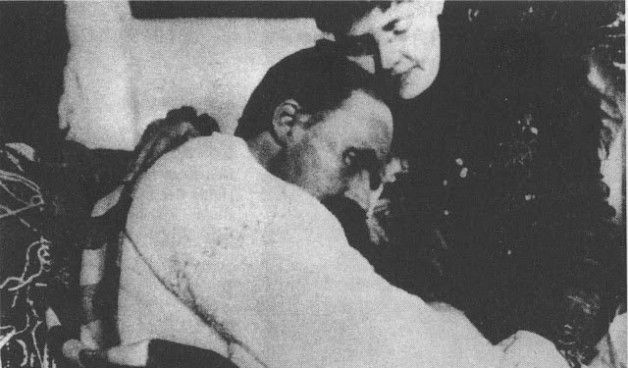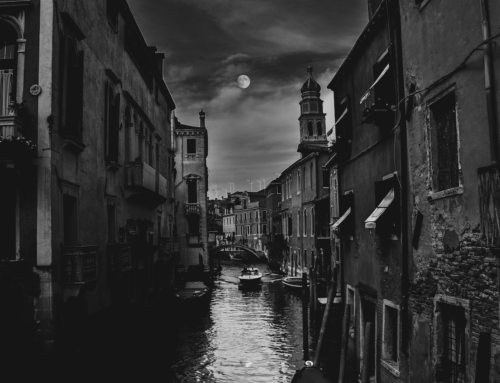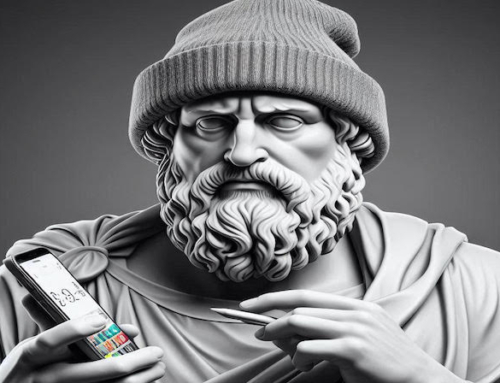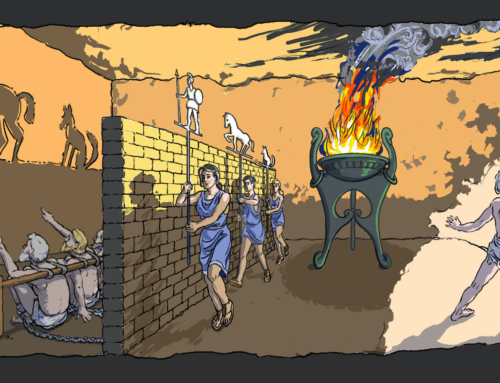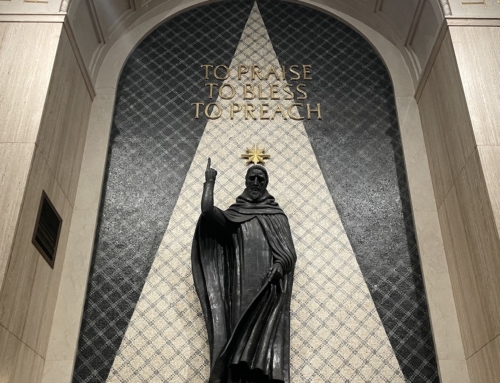The people who institute our laws are weak. They assign praise and blame with their own advantage in mind. To frighten the more powerful they say that getting more than one’s share is “shameful” and “unjust.” We mold the best and the most powerful among us and with charms and incantations we subdue them into slavery. But surely the strong man will shake off, tear apart, and escape all this. He will trample underfoot our documents, our tricks and charms, and all our laws that violate nature. He will rise up and be revealed as our master, and here the justice of nature will shine forth.
At first glance, this would seem to be an excerpt from Friedrich Nietzsche’s nineteenth-century theory on master-slave society and the Übermensch. In reality, however, it’s from Plato’s Gorgias, written in 380 B.C. In this dialogue, the orator Callicles advocates a rejection of society’s man-made laws in favor of the raw justice he finds in nature. Outside the Greek polity, the strong are freed from their ties to the weak and underprivileged, and they are able to maximize their own will, desire, and pleasure. As in the Nietzschean worldview, power acts as the “moral compass” in the strong man’s rule over the many, and the code of justice is replaced with the law of self-preservation.
Aside from indicating that Nietzsche read Plato, this passage gives us an insight into our culture. Although Callicles would probably find even the laws of a modern democracy too restrictive for his liking, he would not fail to notice that they have a certain affinity to the “law of nature.” Modern democratic society may not overtly glorify power for power’s sake, as Callicles’ law of nature does, but it does have the same practical effect. It still pits one man against another because it identifies as the highest and greatest good the expansion of individual autonomy.
One modern alternative to this assertion of autonomy is to promote equality and solidarity among men, to champion an egalitarian ethic. But, as fruitful as cooperative efforts can be, and as attractive as is the goal of “progress” and “betterment” for mankind, such secular projects fail, in the end, to transcend Nietzsche’s game of power. The modern state’s legitimate concern for equality and solidarity ends up being corrupted and vitiated by the desire for absolute individual autonomy. Whether the rallying cry be “will to power!” or “liberté, égalité, fraternité!” it is still man pushing himself onward, seeking infinite power through the intrigues, strategies, and ingenuities of the world.
So what is the Christian response to Callicles and Nietzsche? Ultimately, it is that man is made for something beyond himself, for something beyond this world. In his book, The Sources of Christian Ethics, Fr. Servais Pinckaers, O.P., emphasizes something that we tend to forget, namely, that the aim of Christian ethics is beatitude, which is nothing less than the vision of God. Pinckaers calls this realization of man’s final end a “wisdom received from without.” Clearly, a Christian’s life, thought, and deeds are not focused on himself or even solely on his neighbor, but are founded upon a love so radical that it enters into him and directs him toward God. This is what makes the Christian ethic so profoundly different from the Nietzschean and even the egalitarian model of morality. For the Christian, God is the source and aim of all our activity and virtue, and our love for him properly orders our love for self and neighbor.
To the nihilist who seeks his own radical autonomy, the Christian proposes that man’s end lies beyond himself and in Christ. To the radical Marxist or sans-culotte who would die to make his compatriot a citizen, the Christian points out that one Man has already died so that all may become sons of the Father. To all, the Christian proclaims that, in Christ, man is finally brought above himself, beyond his own world; his eyes are raised to heaven, and his life is hidden in God, the source and end of everything. In Christ, the Christian becomes something far better than a Nietzschean “strong man;” he becomes a sharer in the divine nature.
✠
Image: Friedrich Nietzsche with His Sister in His Last Illness, 1899

